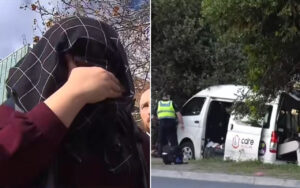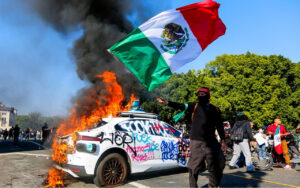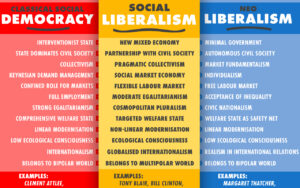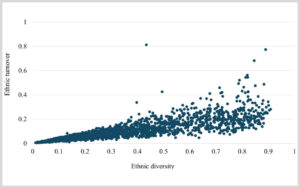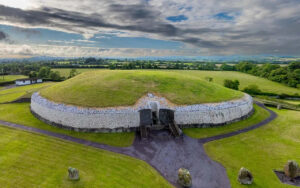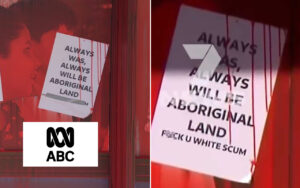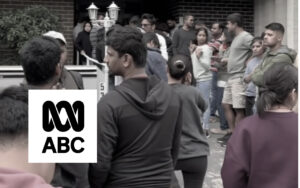By Joseph M Bright
I had hoped that my debut piece here at White Papers would be something more theoretic or philosophical. Perhaps covering a matter of economics, the managerial state, or the downward trend in trust, but that is not to be.
Instead, I write in shock and, if I am entirely honest, a serious bit of anger at the events unfolding in Britain.
A Rwandan, Axel Rudakubana, murdered three children and injured upwards of 8 others in an attack on a girl’s dancing event. This 17-year-old Rwandan is being repeatedly called a “Welshman” and British citizen by our media and each time I read another rehash of that line I grow more weary and less able to hold my tongue.
It’s worth noting that the attack by a Rwandan against British children came just three weeks after Britain’s new Labour Prime Minister declared that a plan to send failed asylum seeks to Rwanda was being scrapped. I know this plan would not have affected Axel Rudakubana, but the symbolism sticks in my mind nonetheless.
Since the deadly stabbing, the British government has moved swiftly, taking action, changing policy, announcing new initiatives, and putting together new strategies to tackle violence. The Prime Minister appeared before the media, surrounded by the national flag and in front of the coat of arms, to announce to the nation the steps he would be taking to silence the anger of native Britons.
The Prime Minister lambasted anyone who dares to be upset about the death and stabbing of little children as “far-right” and accused those who talk about the incident online of committing a crime.
In the same speech where Starmer excoriated the native British for being angry over a mass child stabbing he pledged to “take every step that’s necessary to keep you (Muslims) safe” and said that social media companies would be held accountable for assisting in the spread of disinformation which led to violent acts. (He did not mean violent acts against little British girls dancing to Taylor Swift)
And it is here that I must ask: what disinformation? Did a Rwandan not stab three White children to death? Did he not injure eight others? Was he a Ghanaian or is the British public supposed to play along with the fiction that Axel Rudakubana is as British as Jeremy Clarkson?
The British state is doing more in response to the anger of native Britons than it has ever done to protect Britons from the endless wave of third-world criminality that successive governments (both Labour and Conservative) have visited upon the country for the better part of 60 years.
It is here that I should add I have no wish to see Mosques burned, cities destroyed, police officers harmed, or members of the public injured. Britons are angry and should display that anger through a presence in robust numbers at orderly protests and demonstrations, not with violence.
Nigel Farage, now a member of parliament, came out and said that the PM had not an “Earthly clue” how to stop the violence on the streets of Britain, though Farage was referring to criminal violence and not the anger being displayed by native Britons.
It is clear, though, that Nigel Farage has no idea how to stop the violence either. He advocated for stop and search “regardless of skin colour” and said that prison sentences for those carrying knives needed to be significantly increased. Presumably, he believes this will serve as a form of deterrent. I recommend that Nigel Farage look to the United States and its historically harsh prison sentences that have done little to quell decades of violent largely non-White crime.
For now, it seems that Keir Starmer’s government is going to increase the number of police, track Britons’ movements in their own country, give ample resources to minority groups, and begin even more heavy monitoring of private speech and social media use. These are not real solutions.
There are real solutions available, though.
Silencing Britons on social media and hurling more non-Whites into jail for carrying knives will not stop the rising feelings of social angst and uneasiness at the state of Britain. The only solution to making Britons safer in our own country is to begin reversing the process of demographic replacement that has swamped our towns, cities, and villages with violent foreigners and their descendants.
More than 1.6 million non-Europeans in Britain have a criminal record and roughly half of those people have the citizenship of their ethnic homelands.
Rwandan nationality law would seem to indicate that Axel Rudakubana qualifies for Rwandan citizenship by virtue of his parents’ origin. The Home Secretary could denaturalise Rudakubana and deport him to Rwanda in accordance with current British law. This would be a much more serious form of justice than allowing him to serve out his sentence in a cushy prison at the expense of the British taxpayer.
I would like to see a nationalist narrative pushing for this option. It must be made unequivocally clear that not only do the native British believe multiculturalism in our country has failed miserably but that we want the experiment to be undone as reasonably and peaceably as possible.
This would also be a much more peaceful option than simply continuing mass immigration, multiculturalism, and tolerating the accompanying violence until the British public erupts into an uncontrollable rage. We could deport illegal aliens, criminal dual nationals, and visa holders steadily for several years and in a coordinated fashion.
This push does not need to start as an explicitly ethnic demand but might instead begin life as an implicitly ethnic demand where the British right (and broader public) demands that “foreign” criminals, including those with the potential to be dual citizens, like Axel Rudakubana, be deported.
We must begin to defuse the dangerous powderkeg that is multicultural Britain.
This article originally appeared on White-Papers and is republished by The Noticer with permission. Follow the White Papers Policy Institute on Telegram here.

